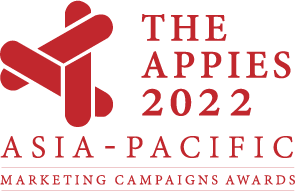By Cllement Tan, Group Managing Director and CEO, RAMSSOL Group Berhad
Artificial intelligence (AI) and employee engagement
This reality has now reached the shores of human capital management (HCM). As the world continues to embrace progress and digitalisation in the Fourth Industrial Revolution, the impact of AI on our everyday lives can no longer be understated.
AI technology with predictive analytics capabilities enables employers to better understand employees who want to leave the organisation, optimise workforce strategies through benchmarking data, and getting the right action to drive business effectiveness.
It is high time for HCM professionals to embrace AI and here’s why.
Human intelligence is limited
A recent study from Princeton University argued that human intelligence has three fundamental limitations: limited time, limited computation, and limited communication[1].
These constraints in a practical sense, demonstrates the gap that AI can fill which a human cannot.
Say for example a company has access to a large swathe of data on employee sentiment in the workplace. This has now become common with weekly update meetings or anonymous surveys where employees can provide feedback on their workloads for the week.
Internet giant, Google, for example, is well known for its “gDNA” employee engagement survey which measures how the employee experience is shaped by their interactions at their work environment.
The next step involves converting all this raw data on workplace sentiment into something usable which can benefit the organisation.
Hiring someone to scour through large batches of data is simply a waste of precious manhours. The solution to this is to incorporate AI into the mix.
AI can not only effectively process large amounts of data but can “cut through the noise” of big data and distil what is needed to better inform HR decision-making.
Where human intelligence sputters when it comes to dealing with such computations in a small window of time, AI is able to breeze through it and produce an output which we can then utilise to better organisational management.
Work optimisation is key
Mundane work is a symptom of ineffective human resource management. Leave the monotonous tasks to the machines. Human intelligence is better spent on human-to-human interactions.
With AI, companies today are better able to automate compliance and repetitive work thus freeing up time for HR staff to work on other aspects like employee engagement.
Not only does AI perform better with such tasks by reducing error rates, but by being methodical with employee engagement, rest assured employees will remain better motivated thanks to an efficient and fool-proof reward system in place.
One such AI solution making inroads in the HCM world recently is Feet’s by RAMSSOL Group. This innovation utilises an AI powered employee engagement mobile app that uses an internal profiling surveys to systematically assesses employee morale.
Then, through a gamification mechanism, employees are rewarded with vouchers and treats to their favourite stores when certain performance milestones are reached.
Companies are increasingly embracing digital transformation in day-to-day work and using tech to reshape the employee engagement experience represents the next logical step for HCM.
In this regard, RAMSSOL has been trailblazing a path forward by engineering cutting-edge technologies that optimise employee satisfaction thus improving workplace morale and work efficiency.
This has been even more pertinent now more than ever in the post-pandemic new normal where workplace digitalisation is speeding up at an unprecedented rate.
The resultant effect creates better transparency and promotes meritocracy in the workplace as well.
Because it is difficult to cheat an AI by faking a good workplace performance, employees will be rid of office politics that often impede organisational efficiency. Where a human being may fall for the follies of bootlicking and underperforming employees, an AI would make no such errors.
It will not be prejudiced in its decisions and will treat all employees equally regardless of their level within the organisation.
AI is cost effective
If you think AI is expensive, think again. Implementing an AI based system is found to be more cost effective in the long run. A LinkedIn survey found that 30% of recruiters used AI in their work because it saves money.[2]
The progress of AI is growing at an exponential rate as the use of data in the workplace increases. This has led to a spike in the demand for AI and as such, a rise in investment in the technology resulting in lower costs of AI hardware and software.[3]
Global technology company IBM reported recently that AI integration, among other modernisation efforts in its HR department led to savings of close to US$1 billion since 2011.
IBM’s proprietary AI powered machine learning systems continue to assist its human managers in handling a plethora of employee management workload such as training, performance reviews, employee engagement and even negotiate compensation packages.
Besides that, as AI becomes more effective, it becomes an indispensable tool in the workplace thanks to its major strength – prediction.
When an AI system is continually fed data – say on employee satisfaction or employee engagement– it self-learns and improves its predictivity thus becoming more reliant. Just like fine wine, AI gets better with time.
Digital transformation trends in HR and businesses have opened up many opportunities for the industry.
A marriage between AI and HR is no longer a pipedream. It is a reality, and one that HR managers out there must be aware of.
Embrace AI, for the future has indeed arrived.
Find out how technology and AI can revolutionise your company’s HR experience.
Call +603 88006611 or logon to www.ramssolgroup.com
[1] [2009.14050] Understanding Human Intelligence through Human Limitations (arxiv.org)
[2] LinkedIn 2018 Report Highlights Top Global Trends in Recruiting
[3] The economics of artificial intelligence | McKinsey

APPIES Asia Pacific 2022 is happening in Malaysia!
Submissions Deadline: 15 November 2021
Announcement of Finalists: 29 December 2021
Judging & Presentations: 25 & 26 January 2022
Winners Announcement: 22 February 2022
Download the entry kit here.
Submit your entry here.
APPIES Asia Pacific is an annual event that presents a rare opportunity for creative, media, digital and marketing agencies or brands to present their best campaigns to the industry.
MARKETING Magazine is not responsible for the content of external sites.









